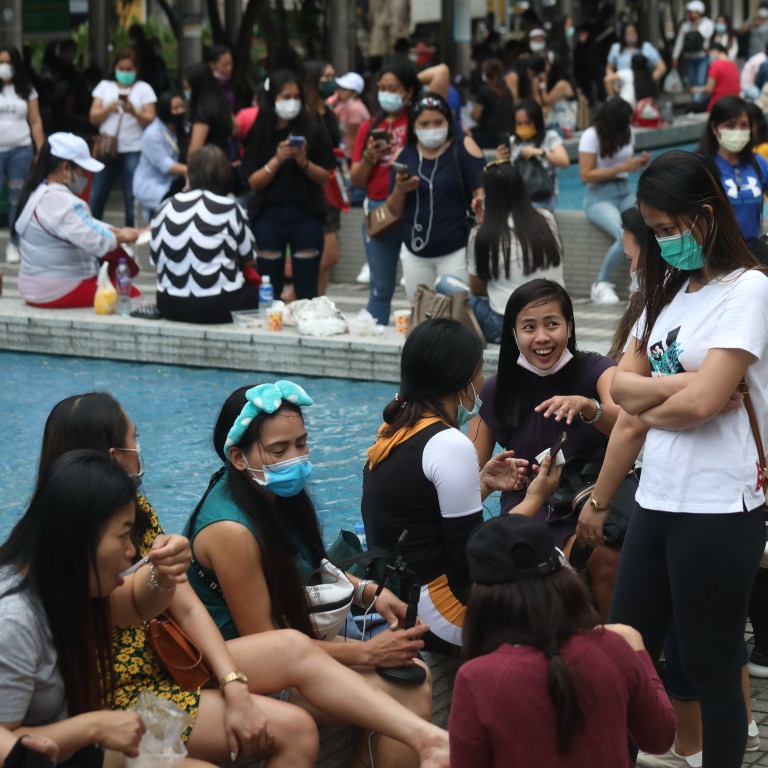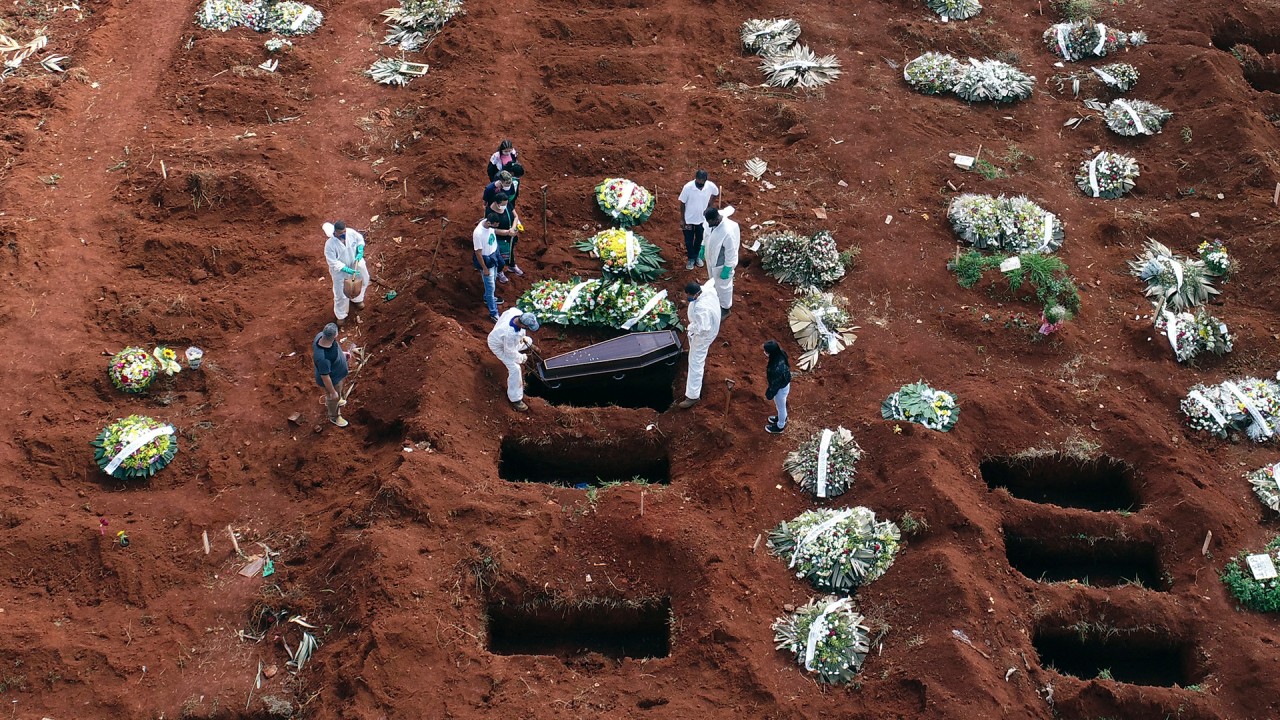
Coronavirus: allow vaccinated domestic workers into Hong Kong, employment agencies urge after two-week ban imposed on Philippines, India and Pakistan
- Head of industry body says at least 70 domestic helpers arrive from the Philippines daily, meaning about 1,000 of them will be affected by the coronavirus-related ban
- Indian and Pakistani communities caught unawares by the sudden measure also flag money, job and health concerns for those who could find themselves stranded thousands of miles away from home for lengthy period
Hong Kong employment agencies have called for alternatives to a two-week coronavirus-related ban on arrivals from the Philippines, India and Pakistan, including allowing vaccinated domestic workers entry to the city, saying more than 1,000 families will struggle to find helpers.
Pandemic adviser suggests 28-day quarantine for arrivals from high-risk countries once flight ban lifted
All flights and people travelling from the three countries, now classed as areas of “extremely high risk”, will be banned from Tuesday. Anyone who has spent more than two hours in any of the three is also banned, while those already in quarantine will be ordered to take a further test on the 26th day after arriving in the city.
This marked the first time the government invoked a new regulation that allowed it to ban all airlines from operating routes from a given country to Hong Kong for two weeks should any carrier bring in five cases of the N501Y mutation over a seven-day period.
The fear for many affected by the measure was that the ban could last even longer, if the countries continued to export more than five mutated strains, according to Kitman Cheung, chairman of the Hong Kong Employment Agencies Association.
Cheung said about 70 to 100-plus domestic helpers arrived from the Philippines daily, meaning about 1,000 of them would be affected by the ban.
“Their Hong Kong employers, many of them with urgent needs to find help to take care of their elderly and young children, have been left desperate by the measure,” he added.
The agency boss said the government, rather than imposing a blanket ban, should be more flexible and consider allowing those who had received Covid-19 vaccinations to travel to the city.
“The Philippines also vaccinates its citizens using Sinovac jabs, the same as Hong Kong. Surely the Hong Kong government could talk to its counterparts in the Philippines to get them to extend the inoculation, currently reserved to government and frontline workers, to domestic helpers?” Cheung said.
Compulsory testing order issued at Harbour City after visit by person carrying mutant strain
If the ban persisted, it could increase demand for locally sourced helpers or those who had just finished their contracts and had been looking for alternative employment. “Prices could go up by 20 per cent, to about HK$6,000 [US$770] a month,” Cheung said.
Mike Cheung, president of the Overseas Employment Centre, believed “desperate” employers could be forced to turn to other countries for the workforce, such as Indonesia and Thailand, which were also besieged by Covid-19 infections, giving a “false illusion” that the border restrictions were working.
He suggested Hong Kong took a leaf out of neighbour Macau’s book, after it announced a 28-day mandatory hotel quarantine for arrivals for those three countries on Sunday. “In the hierarchy of impacts, that would be a bit less worse than a complete ban, although many employers would be wary of paying such a large sum of money,” Cheung said.
Hong Kong’s ethnic minority communities also reacted strongly to the ban. Jimmy Singh Baljinder, co-founder of the NGO Racial Integration Education and Welfare Association, said he knew of more than 10 friends and acquaintances who had been left stranded in India.
“Some have gone back to visit family or to attend weddings. Now their flights have been cancelled and they have no idea how and when they can make bookings again,” he said.
Experts in Singapore wary of mutant strains amid Hong Kong travel bubble plans
They were very anxious about a prolonged stay there, which could mean running out of money, being sacked from their jobs and not being able to take care of their families back home, Baljinder added.
“Many of them have actually tested negative for the virus and were ready to go. Now it may be hard for them to book another one due to oversubscription, and it may increase their chance of them getting infected in India, due to the two-week ban which ironically was aimed at keeping people from being infected.”
Rizwan Ullah, a community leader and former joint secretary of the Pakistan Association of Hong Kong, said the government should improve communication of such policies to ethnic minority residents.
“Many of them have no idea what is going on. I myself was only informed by inquiring reporters this morning,” he said, adding some in the community had language barriers and difficulty accessing information distributed in Chinese.

